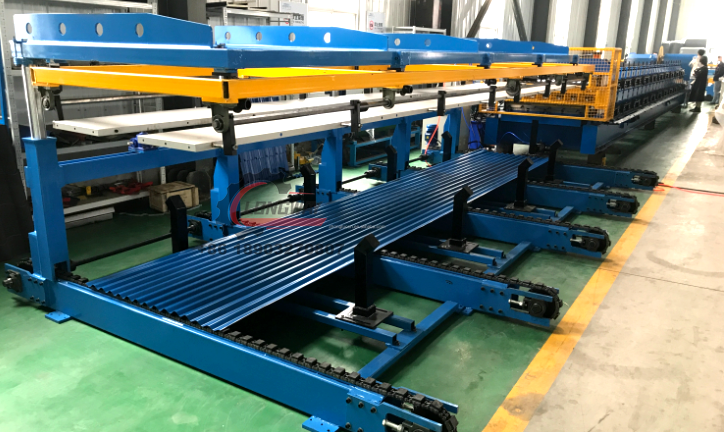Exploring Expenses of Roll Forming Machine Manufacturers and Their Impact on Production Costs
The Cost of Roll Forming Machine Companies An In-depth Analysis
Roll forming machines play a crucial role in various industries, especially in manufacturing and construction, by producing long lengths of metal sheets that have been shaped through a series of rollers. These machines are highly valued for their efficiency and precision. However, the cost associated with roll forming machines can vary widely based on several factors, which warrants a closer look.
Understanding Roll Forming Machines
Before delving into the costs, it’s essential to understand what roll forming machines are. They are used to bend and shape metal strips of various gauges into desired profiles, typically used in the creation of construction materials, automotive components, and household fixtures. The roll forming process involves passing metal through a series of rollers, each gradually forming the metal into a specified contour.
Factors Influencing Costs
1. Type of Machine The cost of roll forming machines can vary significantly depending on their type. For example, a basic roll forming machine may cost between $30,000 to $100,000, while a highly customized or automated machine can range from $100,000 to over $500,000.
2. Customization Companies often require specific profiles tailored to their production needs. Custom machines designed to produce unique shapes or used for specialized industries usually come at a premium. The complexity of the design and the materials used can add to the overall cost.
3. Automation Level The degree of automation in a roll forming machine greatly influences its cost. Fully automated systems that include advanced features such as automated loading, real-time monitoring, and programmable controls are more expensive than manual or semi-automated models.
4. Material Type The type of materials processed also affects costs. Machines designed to handle thicker or harder metals need to be sturdier and more powerful, thereby increasing their price. For instance, machines meant for aluminum will differ in cost from those meant for stainless steel or galvanized steel.
cost of roll forming machine companies

5. Brand and Quality Reputable brands often charge more due to their reliability and the quality of their machines. Investing in a machine from a well-known manufacturer may result in lower long-term operating costs thanks to better durability and support services.
6. Production Capacity The expected production volume plays a critical role in determining the right machine and its cost. High-capacity machines that can run continuously at high speeds will typically command a higher price tag but can lead to cost savings in terms of labor and production time over the long haul.
Additional Costs
In addition to the initial purchase price, companies must consider other costs associated with roll forming machines
- Setup and Installation Proper installation is essential to ensure efficient operation, which may require professional services, adding to expenses. - Operational Costs Maintenance, energy consumption, and labor costs are ongoing expenses that should not be overlooked. A machine that is cheaper upfront may end up being more costly to operate over time.
- Training and Support Employees will need training to effectively operate the machinery, which can further increase initial costs.
Conclusion
The cost of roll forming machine companies encompasses a wide range of factors, from the type and customization of the machines to ongoing operational and maintenance expenses. Companies must carefully evaluate their specific needs and the features of various machines to make an informed investment. When considering the purchase, it is wise to look beyond the initial purchase price and factor in the total cost of ownership, including long-term reliability and support. Understanding these aspects can lead to a more efficient and profitable operation, optimizing the substantial investment that roll forming machines often represent.
-
Roof Panel Machines: Buying Guide, Types, and PricingNewsJul.04, 2025
-
Purlin Machines: Types, Features, and Pricing GuideNewsJul.04, 2025
-
Metal Embossing Machines: Types, Applications, and Buying GuideNewsJul.04, 2025
-
Gutter Machines: Features, Types, and Cost BreakdownNewsJul.04, 2025
-
Cut to Length Line: Overview, Equipment, and Buying GuideNewsJul.04, 2025
-
Auto Stacker: Features, Applications, and Cost BreakdownNewsJul.04, 2025
-
Top Drywall Profile Machine Models for SaleNewsJun.05, 2025








